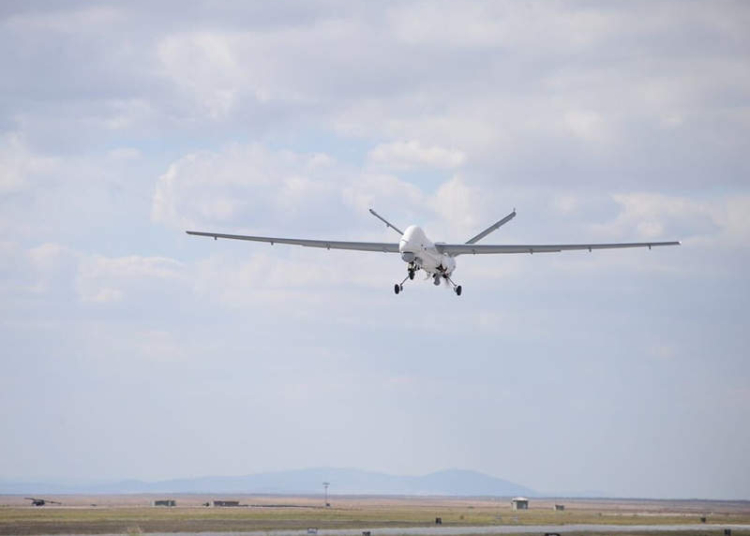Following the successful introduction of the Tunisian International Aerospace & Defence Exhibition which was held on 04 – 08 March 2020 at the Aéroport International de Djerba Zarzis, Mellita, Tunisia, the Tunisian Ministry of Defense has signed a contract with the Turkish aerospace company TAI, for the supply of the ANKA-S Unmanned Aerial Vehicle.
Last year, a tender for the supply of Medium Altitude Long Endurance (MALE) UAV was announced by the Tunisian Ministry of Defense, which was subsequently won by the Turkish Aerospace Industries (TAI).
Tunisia signed the contract for the delivery of ANKA-S in January during a surprise visit by Turkish President Recep Erdogan to Tunisia.
The deal includes three systems, with each system comprising of two UAVs and one control center. All of which costs a total of $80 million dollars. Also, the drone deal will see a technology transfer between TAI and Tunisia for the local assembly of the ANKA S with the possibility of exporting it to other African countries.
At the initial phase of the tender, TAI competed with BAYKAR, another Turkish company that deals with drone technology. Baykar presented its Bayraktar TB2 UAV which has enjoyed some success on the Libyan battlefront but has also suffered significant losses.
Even though, both the ANKA S and Bayraktar TB2 have been used in various battlefields in the Middle East and North Africa (MENA), Tunisia likely opted for the ANKA-S thanks to its satellite-linked command and control capability which allows an operator to send command and control data, and mission objectives to six UAVs through the airborne SATCOM antenna and Turkish Armed Forces Communication System (TAFICS). The satellite terminal also allows the operator to change the flight path during flight mode.
This satellite command and control capability will give Tunisia the ability to conduct long-range strikes as well as Intelligence, Surveillance and Reconnaissance (ISR) missions far from its borders. This ability is particularly important because of the growing number of insecurities in the region, notably Libya.
Also, the ANKA-S satellite command and control capability will allow the ANKA-S UAV to undertake maritime patrol in Tunisia’s Economic Exclusive Zone (EEZ) using the SARPER radar, a synthetic aperture radar (SAR / GMTI / ISAR) developed by the Turkish company -ASELSAN.
Additionally, the ANKA-S recently drew global attention after a series of successes in Syria, Iraq, and Libya especially against the Syrian government forces where it decimated hundreds of military targets including 6 air defense systems such as the Pantsir-S1.
The ANKA-S UAV performed its maiden flight in September 2016 and entered serial production in 2017. The first batch of two Anka-S UAV systems was delivered to the Turkish Air Force in February 2018, while two more aircraft are scheduled for delivery.
The UAV can conduct a range of missions such as real-time intelligence, surveillance and reconnaissance (ISR), communication relay, target acquisition, and tracking, by utilizing its onboard synthetic aperture radar (SAR), inverse SAR (ISAR), and ground moving target indicator (GMTI) radar.
The Anka-S variant is fitted with a modified radome structure incorporating ViaSat VR-18C high-power airborne satellite communications (SATCOM) antenna, which provides secure, high-speed beyond-line-of-sight (BLOS) communications.
With a payload capacity of 200kg, the Anka-S platform can carry a range of mission-specific payloads. A new-generation electro-optic / infrared (EO / IR) camera is fitted for capturing high-resolution imagery and video in all-weather, day / night conditions. The UAV also features an identification friend or foe (IFF) system, laser designator, and laser range finder.
The UAV has two underwing weapon stations, which can carry weapons such as the Rokestan Smart Micro Munition (MAM-L) air-launched missile launcher and the CIRIT 2.75in guided rocket pod to engage light armored vehicles, personnel, military shelters, and ground radar stations.



